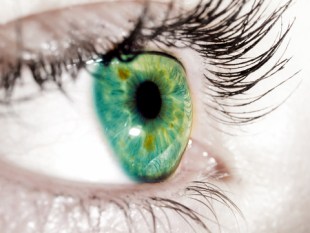I’ve just had a gene test through a fantastic service called 23andme. You simply send off a spit sample and a few weeks later get presented with an online comprehensive report on various genes and your health or disease potential. Amazing stuff!
I was a bit disconcerted though to see I was at a higher risk for macular degeneration. This has set me on a journey to learn more about how to prevent age-related macular degeneration. Here’s an excerpt from the 23andme website:
Age-related macular degeneration (AMD) is the most common cause of irreversible vision loss in the western world among people over 60. The disease affects the central part of the retina, which is critical for activities like reading, driving, or even recognizing faces. AMD can develop so slowly that some people may not even realize they have it, while others suffer a rapid loss of sight in both eyes. More than 1.7 million people in the U.S. have AMD (about 7% of people over 75). It is estimated that by 2020, almost 3 million people will have the disease. Regular, comprehensive eye exams can detect the early signs of AMD. Though any vision that is lost to the disease cannot be restored, there are treatments that can slow AMD’s progress.
What to do?
Firstly of course I reach for my ‘bible’ of health – Fast Living, Slow Ageing. What does it say:
Aging in the retina is associated with accumulation of debris in focal deposits called drusen. An excess of drusen, just like an excess of garbage on the street, can disrupt traffic and make it unpleasant for those (cells) living nearby. An in-growth of new blood vessels in response to the drusen further accelerates the damage and visual loss. When these new vessels bleed or cause swelling of the retina, sudden permanent blindness can occur. However, visual impairment is more commonly insidious and often goes undetected until quite advanced. This form of damage, called Macular Degeneration, is a major cause of blindness as we get older.
There are several preventable risk factors for the development and progression of macular degeneration, including obesity, high blood pressure, diabetes and smoking.
Research has shown that a low-fat diet rich in antioxidants and omega–3 fatty acids (through foods such as green leafy vegetables, whole grains, fish and nuts) appears to reduce the risk of age related macular damage, while a diet high in animal fat makes vision loss from macular degeneration more likely. There is also some evidence that some antioxidant supplements can have beneficial effects on age-related eye disease.
Yet another case for me to get on the straight and narrow with my diet! Go the slow aging diet.
For more information on gene testing go to 23andme.
Last Reviewed: 03-Mar-2011







